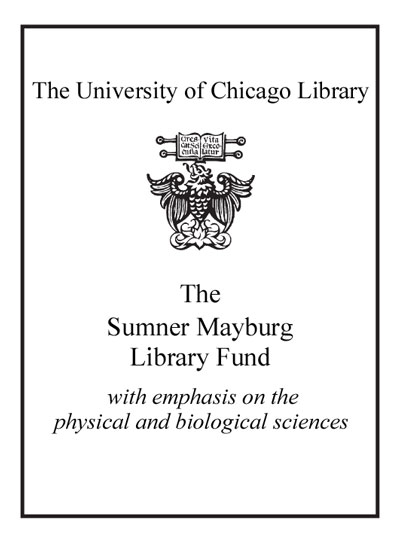Theoretical ecology : principles and applications /
Saved in:
| Imprint: | Oxford ; New York : Oxford University Press, 2007. |
|---|---|
| Description: | ix, 257 p. : ill. ; 26 cm. |
| Language: | English |
| Subject: | |
| Format: | Print Book |
| URL for this record: | http://pi.lib.uchicago.edu/1001/cat/bib/6330127 |
| Summary: | Robert May's seminal book has played a central role in the development of ecological science. Originally published in 1976, this influential text has overseen the transition of ecology from an observational and descriptive subject to one with a solid conceptual core. Indeed, it is a testament to its influence that a great deal of the novel material presented in the earlier editions has now been incorporated into standard undergraduate textbooks. It is now a quarter of a century since the publication of the second edition, and a thorough revision is timely. Theoretical Ecology provides a succinct, up-to-date overview of the field set in the context of applications, thereby bridging the traditional division of theory and practice. It describes the recent advances in our understanding of how interacting populations of plants and animals change over time and space, in response to natural or human-created disturbance. In an integrated way, initial chapters give an account of the basic principles governing the structure, function, and temporal and spatial dynamics of populations and communities of plants and animals. Later chapters outline applications of these ideas to practical issues including fisheries, infectious diseases, tomorrow's food supplies, climate change, and conservation biology. Throughout the book, emphasis is placed on questions which as yet remain unanswered.The editors have invited the top scientists in the field to collaborate with the next generation of theoretical ecologists. The result is an accessible, advanced textbook suitable for senior undergraduate and graduate level students as well as researchers in the fields of ecology, mathematical biology, environment and resources management. It will also be of interest to the general reader seeking a better understanding of a range of global environmental problems. |
|---|---|
| Physical Description: | ix, 257 p. : ill. ; 26 cm. |
| Bibliography: | Includes bibliographical references (p. 216-248) and index. |
| ISBN: | 0199209987 9780199209989 0199209995 9780199209996 |


